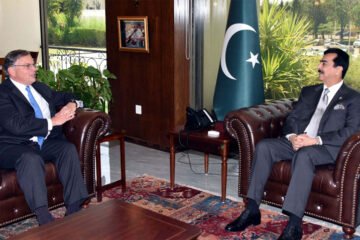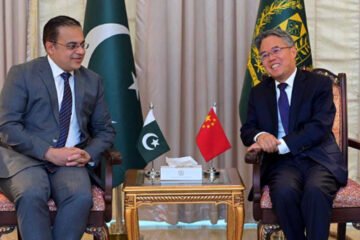Pakistan projects its “atoms for sustainable development” agenda during 63rd IAEA general conference

ISLAMABAD, Sep 19 (APP):During the ongoing 63rd General Conference of the International Atomic Energy Agency (IAEA) in Vienna, Pakistan organized a side-event and displayed an exhibition stall on “Atoms for Sustainable Development” to showcase the work it has undertaken in peaceful uses of nuclear science and technology.
Pakistan continues to utilize the enormous potential of nuclear technology for the socio-economic development of the country and in order to realize the UN Sustainable Development Goals (SDGs), a press release issued by the Ministry of Foreign Affairs here on Thursday said.
Nuclear technology applications are being used in diverse areas of electricity generation, health, agriculture, hydrology, industry, environment and basic sciences.
The delegation of Pakistan participating in the IAEA General Conference, led by the Chairman Pakistan Atomic Energy Commission (PAEC), highlighted that 18 PAEC cancer hospitals in Pakistan were providing facilities in nuclear medicine to nearly one million patients annually and contributing to SDG3 on ‘good health & well-being’.
For SDG2 on ‘zero hunger’, the agri & biotech institutes of PAEC had developed 111 different crop varieties and millions of acres had been treated through Integrated Pest Management (IPM).
For provision of ‘affordable and clean energy’, five nuclear power plants are currently operational in the country and two more are under construction (SDG 7).
The PAEC was also contributing to the goals of ‘quality education’ (SDG 4) and ‘industry, innovation & infrastructure’ (SDG 9) through promoting research and development in several training institutes.
These efforts had resulted in increased collaboration with CERN including through manufacturing equipment for the world’s largest particle accelerator.
Pakistan stands ready to further strengthen its partnership with the IAEA including through contributing to the Agency’s efforts to build capacity in other countries.
Such partnerships are part of Pakistan’s Science Diplomacy initiative, which envisages international cooperation in Science, Technology and Innovation (STI) for socio-economic development and achievement of SDGs.










